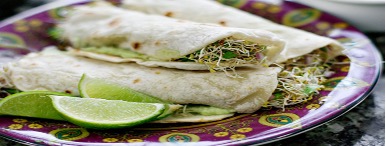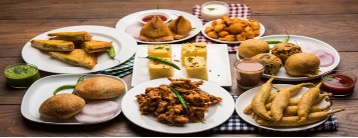
Archives
Contribute
| Know Your Foods And The Calories |
Dr. Indrajeet Tyagi and Iranna Hirapur
03/30/2023
Why are people putting on weight? In the whole world, people are gaining weight because of the prosperity or new economy and their purchasing power that has no restriction on the amount of foods they can buy and consume them without bringing them to halt. Secondly, no time for exercise. In the earlier times, people use to toil a lot and burn the calories. Thirdly, people do not have knowledge about calories. Even the schools do not teach about calories intake while the doctors and dieticians do not have time to teach people about the standard calories intake. Some people improperly learn about the calories from reading here and there and getting some advises from others. Fourthly, the prevailing party culture where people just eat too much fatty foods and drink sugary drinks. People are eating many packed foods while traveling. Due to too many parties and travelling, the amount of food eating has increased. Fifthly, people unknowingly eat those foods that are not healthy and do not eat enough fruit and salads that are healthy. In many cases, their emotion is involved here. They do not want to make themselves or others sad. They think that fried foods, sweets, and snacks have better taste than the fruits and salads. It is very difficult to keep track of our calories intake every day because our daily food consists of carbs, fats, proteins, water, juices etc. Just to simplify our calculation of calories we can stick to the classification of cooked and uncooked foods in the world. How to calculate calories of foods we eat? 1) Low or 20 calories foods comprise of all salads, vegetables, soups, skimmed milk, and juices of 100 grams. 2) Medium or 50 calories foods are mainly fruits of 100 grams except mango, banana, sapota and sweet grapes as they fall into high calorie group. 3) High or 100 calories foods include all kinds of grains or flours or atta, rice, sprouts, oat etc. of 50 grams. 4) Rich or 500 calories foods include all fried items or the items made from butter or ghee such as sweets and snacks made from any kind of atta of 50 grams. What should be a daily meal consists of? Breakfast - eat enough fruits or veggies with some juices or skimmed/low-fat milk. Lunch – eat enough Kachumber or veggies, or salads, with any kind of thick Dals, legumes, or have some salsa or chutneys to make them tasty. Eat enough thick dal to get adequate proteins. You can also eat low fat yogurt. Dinner – eat soups and steamed vegetable with little salt, and black pepper, or chili flakes. Garish your steamed vegetables with some pieces of nuts, herbs, and few drops of lemon juice. Total Exclusion: Just avoid 100 and 500 calories foods from your diet regimen and fill your tummy with 20 and 50 Calories foods. Eat these low and medium calorie foods until you reach your desired weight loss goal. People fail to lose their weight when they eat high calorie foods such as rice or rotis or fried items. Advantages: One major advantage f this Magic Diet is that your belly is always full. If you feel hungry, you can eat more fruits and veggies in between your breakfast and lunch, or lunch and dinner without any fear of gaining weight. From this Magic Diet, you will get all the required proteins, multi vitamins and minerals that shuns weakness, fibers that help to avoid constipation, antioxidants that boosts your immunity. This diet is good for people with heart problems since there is no oil or cholesterol. They will be able to get rid of blood pressure, sugar, weight, and even their heart disease will be reversed. This Magic Diet provides you low calorie foods and you can eat as much you desire. There are no restrictions on how many servings you can eat. Please follow this Magic Diet to lose weight in one to few months. You will be able to lose five to six Kgs in one month without any digestive walk or exercises and 9 to 10 Kgs with regular digestive walk and exercises.



You may also access this article through our web-site http://www.lokvani.com/

Dr. Indrajeet Tyagi

Dr Iranna S. Hirapur, MD, DM (Cardiology)



